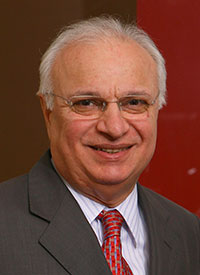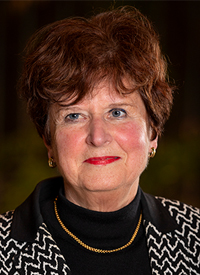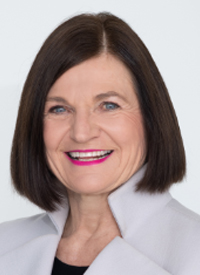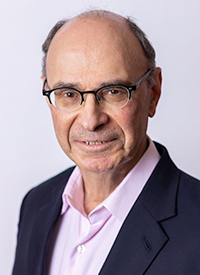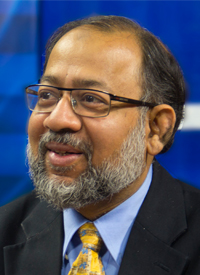Two historical neurology figures played huge roles in understanding functions of the brain and mind.
By E.H. Reynolds, MD FRCP FRCPsych
The place of the Yorkshireman John Hughlings Jackson (1835-1911) in the history of neurology is well documented, so much so that he has been described as the father of British neurology by Critchley and Critchley (1998). As physician to the newly established National Hospital for the Paralysed and Epileptic at the older London Hospital, he wrote extensively on the anatomical and physiological approach to neurological diseases, cortical localization, epilepsy and the nature of the epileptic discharge, aphasia, paralysis and disorders of movement, neuro-ophthalmology, the brain as a sensorimotor machine, evolutionary neurophysiology and dissolution in neurological disease, and finally his doctrine of concomitance of the relationship of brain to mind (York and Steinberg 2006).
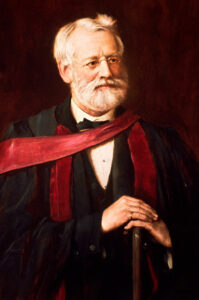
Thomas Laycock (1812-1876). (Reprinted by kind permission of the Royal College of Physicians of Edinburgh.)
Thomas Laycock and His Influence on Jackson
The influence of Thomas Laycock (1812-1876), also a Yorkshireman, on neurology is much less well recorded or appreciated, although as Jackson’s teacher at the York Medical School from 1852-1855, he introduced him to neurology and greatly influenced his approach to brain function and diseases of the nervous system, especially through Laycock’s theory of the reflex functions of the brain, which he presented to the British Association for the Advancement of Science in York in 1844.
Laycock studied medicine at University College London (1833-1835), followed by a session at La Pitié in Paris, where he absorbed the French clinico-anatomical-physiological-pathological method, which he later imparted to Jackson. He also graduated MD at Göttingen in 1839 before returning to York as lecturer in medicine. Unlike the philosopher-physician Jackson, he was fluent in French and German and took a scientific approach to medicine, becoming statistical secretary to the British Association for the Advancement of Science from 1844.
In 1855-1856, Jackson and Laycock headed in opposite directions from York. Jackson proceeded to London to complete his medical studies and later to develop his neurological career. Laycock successfully applied for the chair of the practice of physics in Edinburgh, the first Englishman to be appointed to the most prestigious chair in medicine in the UK at that time. In addition to his teaching duties, Laycock wrote widely on general medicine, including infectious diseases and public health, but from the beginning his overriding interest was always in nervous and mental diseases. His 1840 book, An Essay on Hysteria, was noted and commended by Charcot. In 1851, he translated A Dissertation on the Functions of the Nervous System by G. Prochaska from Latin into English. In 1860, he published his magnum opus, Mind and Brain in two volumes. Based on his encyclopedic knowledge of the scientific, medical, and philosophical literature, Laycock took an evolutionary view of brain and mind and of dissolution in disease. He viewed mental diseases as diseases of brain, based on continuity between physical, vital, and mental energies. He advocated the study of medical psychology in health and insanity as fundamental to medicine, society, and culture.
Accordingly in 1859, Laycock established the first university course on medical psychology and mental diseases, for which he was additionally appointed lecturer in medical psychology and mental diseases. Earlier in 1856, he had been appointed a Fellow of the Royal Society of Edinburgh and Physician to the Queen in Scotland. In 1868, he was elected president of the Medico-Psychological Association, giving his residential address in York to which Jackson traveled from London.
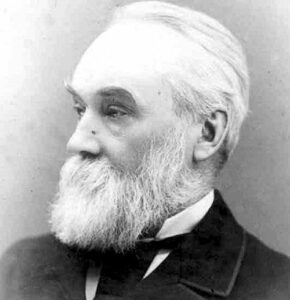
John Hughlings Jackson (1835-1911).
Jackson’s Brain/Mind Theory: Sensorimotor Machine and Concomitance
Influenced by Laycock, especially his theory of the reflex functions of the brain, Jackson continued to search for fundamental principles of nervous action. Building on Laycock’s theory, he developed his own theory in the 1870s and 1880s that the brain is exclusively a sensorimotor machine associated with his doctrine of brain/mind concomitance. He viewed the central nervous system as made up of processes of increasing degree of complexity representing impressions and movements. The whole nervous system was “a sensorimotor machine, a coordinating system from top to bottom.” Furthermore, brain and mental states are intrinsically different, occur in parallel and have no causal interaction between them. There is no physiology of the mind any more than there is a psychology of the nervous system. Thus:
“States of consciousness (or synonymously states of mind) are utterly different from nervous states of the highest center; the two things occur together, for every mental state there being a correlative nervous state; although the two things occur in parallelism, there is no interference of one with the other.”
Curiously, Jackson does not acknowledge Laycock in his own evolutionary approach to brain and mind, including dissolution in neurological disease, but instead he relies on the evolutionary philosopher, Herbert Spencer (1820-1903).
Laycock’s Brain/Mind Theory: Continuity and Unconscious Cerebration
In the meanwhile, however, Laycock had developed a different concept of the relations between brain and mind. Although both saw the brain and mind as the highest point of evolutionary development, Laycock concluded from his theory that although much of human behavior was reflex, automatic, and involuntary, some was conscious and voluntary. Thus, he opened the door to what he called “unconscious cerebration.” Furthermore, unlike Jackson, he separated “mind” from “consciousness.” For Laycock, consciousness was conscious awareness. Mind he described as an agency in man distinct from matter and organization but dependent on organization, i.e. the brain, for the due display of its effects. Mind originates motion or wills, perceives the qualities of matter, compares the perceptions and thinks. Finite minds could not perceive matter without force (energy). Finite minds transfer force. The brain is adapted; the mind is the force that adapts to ends. All mental states are reflections in our consciousness of the vital laws and forces. Mental science is linked to physics through biology and the laws of life.
Jackson, on the other hand, considered consciousness and mind to be synonymous terms. He never defined “mind,” although he considered the brain and perhaps the whole body to be “the organ of mind.” He struggled with the concept of unconscious states of mind, which he considered a contradiction and rejected. Whereas Laycock envisaged higher centers in the brain serving instincts, feelings, knowledge, and reason, Jackson claimed that it was impossible to locate mental function because the nervous system is exclusively sensorimotor. Although mental disease may be present, he viewed its nature as beyond the purview of medical science.
Conclusions
Laycock was the primary and most significant influence on Jackson’s interests and approach to diseases of the nervous system. Jackson’s view of the brain as an exclusively sensorimotor machine and his doctrine of concomitance of brain and mind were founded on Laycock’s theory of the reflex actions of the brain. Laycock, however, moved on, separated mind from consciousness and viewed his reflex theory as opening the door to unconscious and conscious brain activity, both of which Jackson rejected. Laycock considered mind to be causally linked to the brain through physics and biology and urged the study of mind in health and insanity through medical science.
In Edinburgh, he taught a distinguished generation of neurologists and psychiatrists, including Sir James Crichton-Browne and Sir David Ferrier, who together with Jackson, who Laycock had earlier taught in York, were three of the four founders of the journal Brain in 1878. Laycock’s brain/mind concepts are nearer to current concepts than those of Jackson, and he would have approved of the modern neuroscientific approach to mental illness, which he first promoted. For many reasons, Jackson is rightly respected as a seminal influence on neurology. Laycock, however, is a rather neglected figure, although his views of brain, mind, and disease are nearer to our modern concepts than those of Jackson. If Jackson is the father of British neurology, Laycock has some claim to be considered father of British neuropsychiatry.
Another version of this text will be published in the newsletter of the History of Psychiatry Section of the Royal College of Psychiatrist in London. •
References.
Critchley M, Critchley EA. John Hughlings Jackson, Father of English Neurology. Oxford: Oxford University Press, 1998.
Laycock T. Reflex, automatic, and unconscious cerebration: A history and a criticism. J Ment Sci 1876; 21: 477-498
Reynolds E.H. John Hughlings Jackson and Thomas Laycock: Brain and Mind. Brain 2020; 143: 711-714
York GK, Steinberg DA. An Introduction to the Life and Work of John Hughlings Jackson with a catalogue raisonné of his writings. Medical History, supplement No. 26. London: The Wellcome Trust Centre for the History of Medicine, 2006.
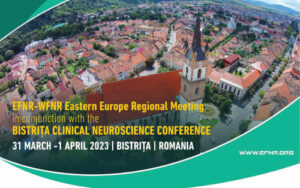
 The forum was organized by Prof. Dr. Dafin Muresanu, president of the
The forum was organized by Prof. Dr. Dafin Muresanu, president of the 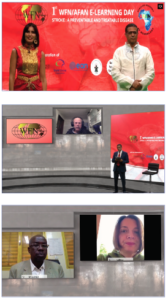 The World Federation of Neurology (WFN) has been working with regional organizations and with a collaboration of other international organizations to create free e-learning days for neurologists, residents in neurology, and other health care professionals around the world.
The World Federation of Neurology (WFN) has been working with regional organizations and with a collaboration of other international organizations to create free e-learning days for neurologists, residents in neurology, and other health care professionals around the world.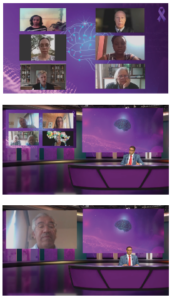 It was followed by the Second WFN-AFAN e-Learning Day, which took place on Nov. 6, 2021, and the overarching theme was epilepsy. The EAN, AAN, and the International League Against Epilepsy (ILAE) provided support for this educational event.
It was followed by the Second WFN-AFAN e-Learning Day, which took place on Nov. 6, 2021, and the overarching theme was epilepsy. The EAN, AAN, and the International League Against Epilepsy (ILAE) provided support for this educational event.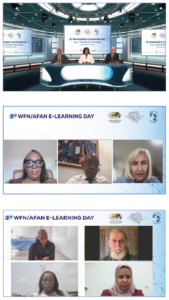 This year, the Fourth WFN-AFAN e-Learning Day will take place Saturday,
This year, the Fourth WFN-AFAN e-Learning Day will take place Saturday,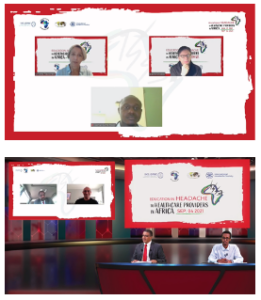 The first
The first 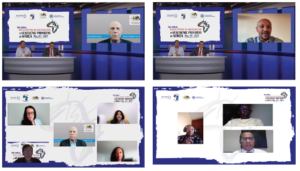 French parallel session
French parallel session 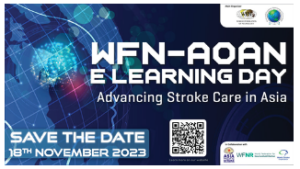 These successful e-Learning activities are highly practical for neurologists and other health care professionals all over the globe to improve their neurological skills and practice. They play an important role within the mission of WFN, which is to foster quality neurology and brain health worldwide.
These successful e-Learning activities are highly practical for neurologists and other health care professionals all over the globe to improve their neurological skills and practice. They play an important role within the mission of WFN, which is to foster quality neurology and brain health worldwide.